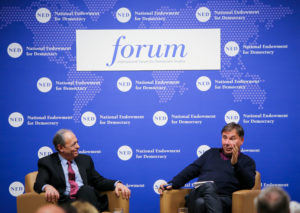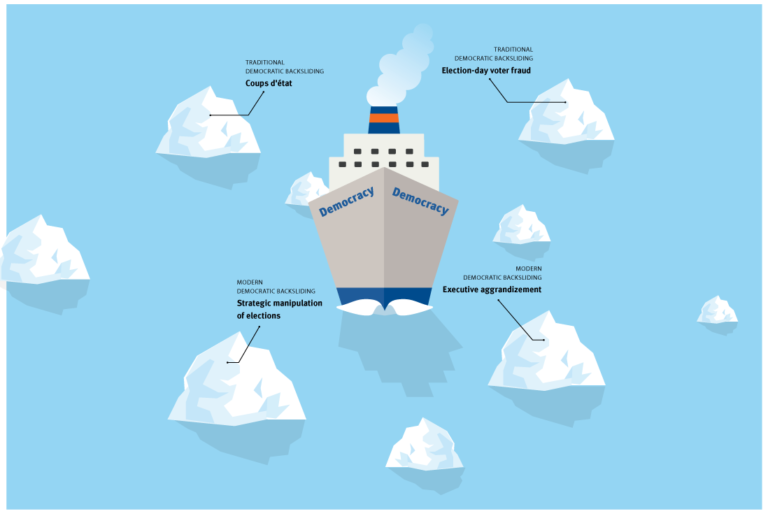There were sighs of relief throughout the European Union after President Emmanuel Macron beat back a serious challenge in France from the populist far-right champion Marine Le Pen. Then another populist went down, in Slovenia, where the country’s three-time prime minister, Janez Jansa, lost to a loose coalition of centrist rivals in parliamentary elections on Sunday, The New York Times reports.
It appears that many French voters were not fooled by Le Pen’s rebranding, as Brookings analyst Agneska Bloch had cautioned in the Journal of Democracy.
The results dealt a blow to the illiberal “national conservatism” associated with Hungary’s Viktor Orban.

National Endowment for Democracy (NED)
“The whole world has seen tonight in Budapest that Christian democratic politics, conservative civic politics and patriotic politics have won,” he had declared following his own electoral victory this month. “We are telling Europe that this is not the past: This is the future. This will be our common European future.”
Maybe not.
“The international environment for Orban has never been so dire,” said Peter Kreko, director of Political Capital, a Budapest-based think-tank, and a former Reagan-Fascell fellow at the National Endowment for Democracy (NED).
Orbán and his like “have understood is that democracy is relatively easy to co-opt,” says a leading observer.
 When the Cold War ended, the Western democracies were quite blind to what extent their existence, their political and social system, was very much preconditioned on the Cold War and the existence of the Soviet Union, argues Ivan Krastev (right, with NED board member Marc Plattner), chair of the Center for Liberal Strategies in Sofia, founding board member of the European Council on Foreign Relations and the author of “After Europe.”
When the Cold War ended, the Western democracies were quite blind to what extent their existence, their political and social system, was very much preconditioned on the Cold War and the existence of the Soviet Union, argues Ivan Krastev (right, with NED board member Marc Plattner), chair of the Center for Liberal Strategies in Sofia, founding board member of the European Council on Foreign Relations and the author of “After Europe.”
“Because listen, this is extremely important,” he tells The New York Times’ Ezra Klein:
When you have Soviet on the other side claiming that they represent the proletariat, you should very carefully think how your workers are perceiving what is going on. It’s so important for you, your workers to be on your side. So the welfare state was not simply an economic project. The welfare state was a security project.
Krastev advocates a “change of narratives” from seeing in terms of the Cold War, namely democracy versus authoritarianism — and recognizing that illiberal and autocratic forces have arisen by asserting the importance of sovereignty in an interdependent world. RTWT

BACKSLIDING/IDEA
Who’s to Blame for Democratic Backsliding: Populists, Presidents or Dominant Executives?
When backsliding occurs at the hands of populist presidents who were elected in landslide elections, producing dominant executives with few institutional checks and weak opposition parties, should we blame the decline in democracy on their populist ideology, their presidential powers, or their parties’ dominance in the legislature? Stanford’s Freeman Spogli institute adds.
 Marisa Kellam, associate professor of political science at Waseda University (Tokyo, Japan), used newly available datasets on populist leaders and parties to evaluate the danger of populists in government, and employ matching methods to distinguish the effects of populist executives, popularly-elected presidents, and dominant executives on the extent of decline in liberal democracy.
Marisa Kellam, associate professor of political science at Waseda University (Tokyo, Japan), used newly available datasets on populist leaders and parties to evaluate the danger of populists in government, and employ matching methods to distinguish the effects of populist executives, popularly-elected presidents, and dominant executives on the extent of decline in liberal democracy.







